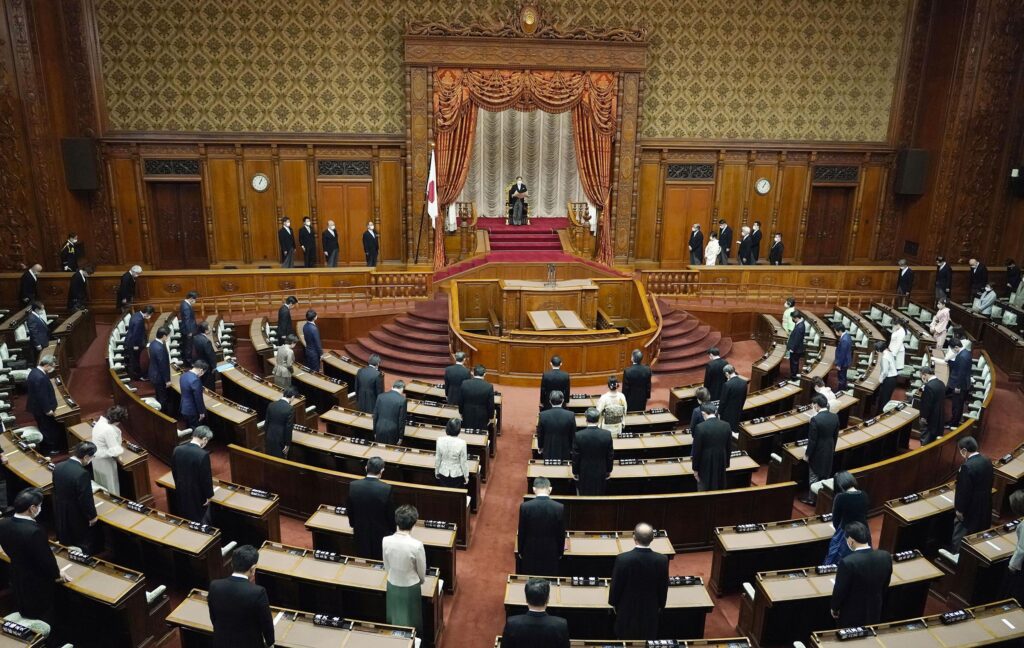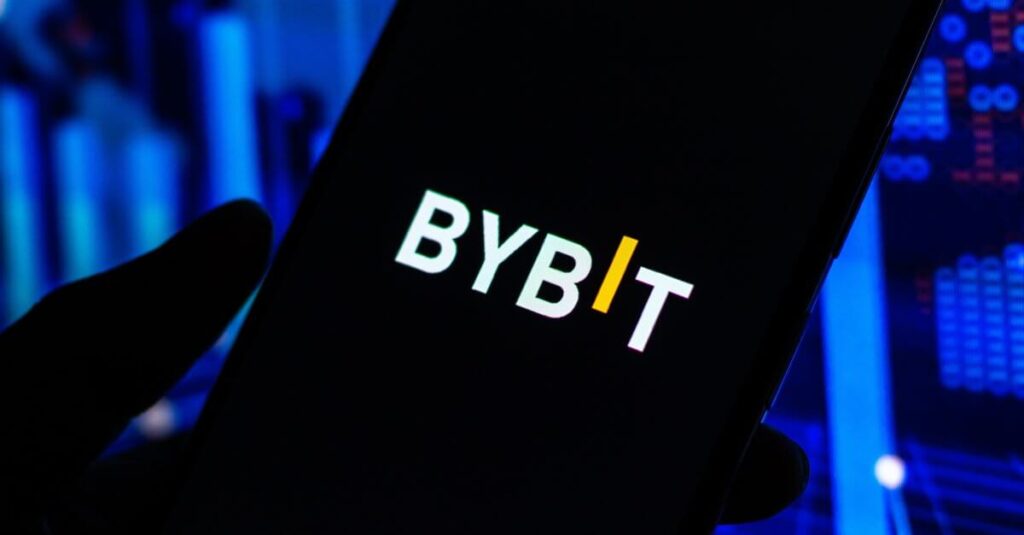Prosecutors in the United States have charged nine individuals connected to crypto firms accused of defrauding investors of roughly $8.4 million in separate cases, it was reported on Wednesday.
Courts charged New York native and IcomTech founder David Carmona with conspiracy to commit wire fraud, which could earn up to 20 years in jail.
Forcount founder and Brazilian national Francisley da Silva also received counts of wire fraud, wire fraud conspiracy, money laundering conspiracy, and others. Charges could earn da Silva up to 60 years in prison.
Which Charges Are on the Table?
The US Attorney’s Office for the Southern District of New York laid the charges on 14 December, stating IcomTech and Forcount, crypto mining and trading enterprises, offered supposed guaranteed daily returns to double investments in up to six months for coin holders.
The firms later used the funds from purchasers to pay initial investors and additionally bought expensive luxury goods and properties, the indictment said.
It accused them of buying “lavish expos” in the US and other locations to promote its brand. Sporting pricey vehicles, expensive clothing, and other luxury items, employees aimed to attract investors with promising returns on investment with the campaigns. Users later found they could not withdraw funds from the exchange, triggering the collapse of the company.
The US Securities and Exchange Commission (SEC) later slapped charges on Forecount’s founders and key employees, stating they aimed to seek out Spanish-speaking investors. This earned the firms over $8.4 million from fake memberships with the promise of shares in the companies trading and mining earnings.
Tokens, Cellphones, and Denials
IcomTech and Forcount also opened respective native Icoms and Mindexcoin tokens to pay back investors of both platforms. The plan later fell through last year and investors failed to receive payments.
The indictment read: “In addition to promoting the Forcount scheme, SILVA and TACURI also sought to conceal their fraud by laundering Victim funds through shell companies and making large personal expenditures on things like real estate and bulk cellphone purchases. On or about June 27, 2022, law enforcement officers with HSI stopped and interviewed HERNANDEZ as she was returning to the United States from Mexico. During the interview, HERNANDEZ falsely denied, among other things, being a Forcount promoter, recruiting investors, and taking money from them.”
Japan’s government is preparing to ease regulations for taxes on crypto firms in the country to boost investment and growth in its fintech market.
To date, Japanese crypto companies pay 30 percent corporate tax rates on holdings, triggering an exodus of cryptocurrency enterprises from the island state over the past few years.
A tax committee meeting took place for Japan’s Liberal Democratic Party (LDP) on Thursday, leading to an approved proposal to eliminate paper gains tax requirements for crypto holders.
Japan’s Parliament is expected to receive the proposal next month and implement the new rules on 1 April, according to reports.
Akihisa Shiozaki, Web3 policy officer, told Bloomberg at the time: “This is a very big step forward […] It will become easier for various companies to do business that involves issuing tokens.”
Japanese Prime Minister, Fumio Kishida, said in October that numerous emerging technologies such as blockchain, non-fungible tokens (NFTs), and the Metaverse would facilitate the nation’s digital transformation. The nation would also digitise national identity cards.
The developments come after the recent bankruptcy of FTX, its research arm Alameda Research, and 130 affiliates following a massive bank run on the company’s native FTT token on 11 November.
In recent years, multiple nations, regions, and cities have pushed for similar initiatives with emerging technologies. Dubai, China, South Korea, the United States, United Kingdom, Saudi Arabia, and many others have launched plans to promote national digital transformations with Web3 technologies.
Silvergate Bank, Silvergate Capital Corporation, and its chief executive Alan Lane face a class-action lawsuit in California courts, it was revealed this week.
The California Southern District Court received the lawsuit against the company with ties to the now-defunct crypto exchange platform FTX and Alameda Research.
It aims to hold Silvergate accountable for facilitating illegal money deposits, triggering massive bank runs across crypto platforms and their subsequent collapses.
Lawsuit Details
Joewy Gonzalez and others filed the litigation, which accuses FTX of failing to deliver on promises it would “store assets securely as they gained in value, cash them out or trade them for other assets.”
He and the linked plaintiffs alleged Silvergate facilitated FTX and its mismanagement of funds and illegal money transfers, lending, and mixing funding sources.
The lawsuit, represented by Girard Sharp and Hartley LLP, states that Silvergate engaged in “furthering FTX’s investment fraud” and called for the firm to return owed money to defrauded investors.
A Letter of Intent
United States Senators Elizabeth Warren, Roger Marshall, and John Kennedy, wrote to Silvergate on 6 December inquiring about its loss of billions in client holdings.
It read: “Given these concerns about Silvergate’s failure to apply extensive review processes to FTX and Alameda, and the possible role the bank may have played in the loss of billions of dollars-worth of customer funds, the senators are asking Silvergate to answer a set of questions to provide the public a full accounting of its relationship with FTX and Alameda and information about its safety and soundness by December 19, 2022.”
The news comes as lawyers for the embattled exchange requested authorities to sell its European and Japanese operations. They also plan to sell LedgerX and Embed, FTX’s stock-clearing platform, with lawyers citing regulatory pressures and asset risks.
A White House spokesperson has declined a response to reporters after one asked whether United States president Joe Biden would return former FTX chief Sam Bankman-Fried’s $5.2 million in campaign funds.
White House press secretary Karine Jean-Pierre avoided answering questions from Associated Press reporter Zeke Miller in a 13 December presser, with the latter asking “Will the president return that donation?”
Miller continued: “Does he call on all politicians who got campaign donations that may have come from customer money to return those funds?”
.@ZekeJMiller: Biden "received campaign donations…from [SBF] and many prominent Democrats…Will [he] return that donation? Does he call on all politicians who got…donations that may have come from customer money to return [them]?"
— Curtis Houck (@CurtisHouck) December 13, 2022
KJP declines to comment, citing Hatch Act. pic.twitter.com/fxdhNMUkW0
Responding, Jean-Pierre said: “I’m covered here by the Hatch Act [and am] limited on what I can say […] Anything that’s connected to political contributions, from here I would have to refer you to the DNC (Democratic National Committee).”
Jean-Pierre’s comments refer to the Hatch Act, which bans executive branch employees from joining political campaigns.
The exchange continued, with Miller hitting back, stating: “I’m asking the President’s opinion though.”
Jean-Pierre responded, stating: “I just can’t talk to political contributions or anything related to that I cannot speak about it from here […] even his opinion, even his thoughts about the contributions, donations — I cannot speak […] about that from here.”
The Unravelling of FTX
The comments come after Bahamian authorities arrested the ex-FTX executive for mishandling funds and committing fraud. Additional penalties include breaking campaign finance laws, contribution breaches, contributing funds in others’ names, and obstructing the Federal Election Commission’s duties.
According to figures from the campaign contributions website Open Secrets, he contributed $5.2 million in donations, just second to Michael Bloomberg’s $56 million. He also donated $36.8 million to candidates of the Democratic Party for its 2022 midterm election cycle.
Authorities may force donor recipients to return the funding, totalling up to $73 million, after FTX, research wing Alameda Research, and 130 affiliated companies filed for Chapter 11 bankruptcy on 11 November. Multiple politicians have passed the donations to other charities to avoid association with FTX.
A United States federal court judge ordered the Commodities Future Trading Commission (CFTC) to proceed with its lawsuit against executives from the Ooki decentralised autonomous organisation (DAO), it was reported on Monday.
According to documents, District Judge William Orrick ordered authorities to slap bZeroX founders Tom Bean and Kyle Kistner.
Authorities recently charged the two executives in September over alleged illegal commodities offerings. Following its rebrand to the Ooki DAO, Judge Orrick restructured the lawsuit.
He said: “It seems clear in this case that Ooki DAO has actual notice of the litigation,” Judge Orrick wrote. “But to provide the best practicable notice, the CFTC should serve at least one identifiable Token Holder if that is possible.”
Previous lawsuit filings faced headwinds from Ooki DAO supporters, who urged the CFTC to serve the organisation directly with lawsuits.
Supporters filed numerous amicus briefs urging Judge Orrick to permit the use of Ooki DAO’s chat box.
Continuing, Orrick wrote: “At the hearing, the CFTC asserted it knew that some of Ooki DAO’s Token Holders reside and conduct business in the United States because the two founders of Ooki DAO’s predecessor entity, bZeroX LLC, are Token Holders who reside in the United States.”
He added: “This was new information to me. Neither the complaint nor the CFTC’s Motion for Alternative Service mention that the former founders, [Bean and Kistner], are or have been Token Holders […] The CFTC is now ORDERED to serve Bean and Kistner, in their roles as Ooki DAO Token Holders.”
Charges served in September included illegally offering “illegally offering leveraged and margined retail commodity transactions in digital assets” via its former platform.
Sam Bankman-Fried, the former chief executive for now-bankrupt crypto exchange FTX, has denied knowledge of the “Wirefraud” secret group chat.
The group reportedly consists of former executives from the exchange platform and its research wing, Alameda Research.
Bankman-Fried took to social media to hit back at an Australian Financial Review (AFR) report on 12 December accusing the disgraced crypto executive of being involved in the Signal-based group chat.
According to the report, the collective included Nishad Singh, former FTX engineer, Caroline Ellison, Alameda Research chief executive, Zixiao Wang, FTX co-founder, and others. It added group members used the encrypted chat to share information about the two firms prior to their collapses.
If this is true then I wasn't a member of that inner circle
— SBF (@SBF_FTX) December 12, 2022
(I'm quite sure it's just false; I have never heard of such a group)
He said in a tweeted response to the article: “If this is true then I wasn’t a member of that inner circle (I’m quite sure it’s just false; I have never heard of such a group)
SBF Arrest, Potential Subpoena
The news comes as US officials expected the former exec to remotely join a United States House Committee hearing on Tuesday to testify on the events leading up to FTX’s collapse.
He was arrested a day before the hearing by Bahamian authorities on charges of wire and securities fraud, mishandling funds, and money laundering, among others.
Maxine Waters, House committee chair, later stated on Monday he would be unable to attend the hearing due to the arrest. The announcement comes after he was also expected to attend a further Senate Committee on Banking hearing on 14 December. His lawyers refused to accept a subpoena, Senators Pat Toomey and Sherrod Brown noted in a Monday joint statement on the matter.
The news comes just days after the United States Department of Justice (DoJ) launched an investigation to determine whether Bankman-Fried had committed fraud and funds offshoring days ahead of the crisis.
FTX suffered a huge liquidity crunch and subsequent bank run in mid-November, leading to the exchange’s Chapter 11 bankruptcy on 11 November along with Alameda and 130 affiliates.
Cynthia Lummis, a pro-cryptocurrency Senator in the United States, has voiced continued support for using Bitcoin for her retirement plans.
Working with Senator Kirsten Gillibrand, Lummis has proactively backed cryptocurrency regulations, namely after joining Semafor, an online media outlet, on Monday.
In the article, she stated that the ongoing cryptocurrency crisis had not deterred her from supporting Bitcoin and that she still backed people adding the digital asset to their 401(k) retirement packages.
Speaking at the meeting, she said: “I’m very comfortable with making sure that people can include Bitcoin in their retirement funds because it’s just different than other cryptocurrencies […] I personally believe that because there are only going to be 21 million Bitcoin that are mined, that Bitcoin will go up.”
In a recent tweet, she slammed FTX, stating its actions were “good, old-fashion fraud” and urged authorities to “ensure everyone who committed crimes is held accountable for what they did.”
She added she hoped her colleagues would support and pass the Lummis-Gillibrand Responsible Financial Innovation Act to “prevent future collapses like FTX.”
People lost their hard-earned money, and they deserve justice for any wrong doing. I am hopeful my colleagues share my desire to pass the Lummis-Gillibrand Responsible Financial Innovation Act. This comprehensive legislation would prevent future collapses like FTX.
— Senator Cynthia Lummis (@SenLummis) December 13, 2022
The news backtracks from previous stances the politician held in June last year, where she aimed to include specified cryptocurrencies.
She said at the time: “I’d also like to see individuals be able to use Bitcoin and cryptocurrencies of their preference that are safe, that have met the hurdles of anti-money laundering and Bank Secrecy Act.”
Conversely, Senators Elizabeth Warren, Richard Durbin, and Tina Smith, among others, have called for Fidelity Investments to cancel its Bitcoin-based retirement package plans in a recent letter, citing the ongoing FTX collapse.
It read: “As with all financial products, price fluctuations are an expected feature of the market — and it is shortsighted to believe that setbacks in an industry are an indication that it won’t experience long-term growth.”
Ray Youssef, chief executive of Paxful, has become one of the latest supporters of self-custody wallet ownership amid the ongoing FTX crisis and its aftermath.
The executive said in an 11 December tweet: “[I] will be sending an email every week strongly advising our people to never keep savings on any exchange, including [Paxful]. This is the way! Self custody your savings ALWAYS!”
Will be sending an email every week strongly advising our people to never keep savings on any exchange, including @paxful This is the way ! Self custody your savings ALWAYS! pic.twitter.com/DI95Gaa5Y6
— Ray Youssef (@raypaxful) December 11, 2022
According to reports, Paxful manages over 11 million users. His comments come as multiple exchanges, including Kraken, Binance, and Crypto.com have also vowed to publish proof-of-reserves (PoR) on their websites.
FTX Collapse Sparks Self Custody Movement
The news comes after Sam Bankman-Fried, the former chief executive of the collapsed cryptocurrency platform, filed for Chapter 11 bankruptcy on 11 November along with its research firm, Alameda Research, and 130 affiliated enterprises.
Fresh allegations have surfaced that Bankman-Fried had mismanaged and misappropriated funding via Alameda research, triggering firms to publish PoF to ensure the liquidity of their platforms.
Youssef added in his public message he had never mishandled any of the funds on his exchange, stating:
“My sole responsibility is to help and serve you. That’s why today I’m messaging all of our [Paxful] users to move your Bitcoin to self-custody. You should not keep your saving on Paxful, or any exchange, and only keep what you trade here.”
He also pledged to delist Ether (ETH) as a tradable asset due to an alleged lack of integrity compared to Bitcoin’s ecosystem. Similar delistings of ETH come after Jeremy Garcia, Satoshi’s Journal founder and chief executive, slammed Ethereum’s protocol.
Many have responded positively to his efforts to educate crypto holders, with other Twitter users adding their expertise and suggestions.
The news comes after Binance chief executive Changpeng Zhao (CZ) urged investors to transfer holdings to self-custody wallets following the FTX crash. He stated in a recent tweet that self-custody was a “fundamental human right” and called for cryptocurrency holders to “make sure you [do] it right.”
CoinCorner and Bitnob have teamed up to offer global users cross-border transactions for multiple fiat currencies, a 12 December blog post revealed amid the ongoing crypto market crisis.
The new partnership aims to circumvent centralised third-party funds transfers across the Europe, Middle East, and Africa (EMEA) region. Such entities slow processing times and charge hefty fees per transaction.
Despite this, the new joint effort will allow Bitcoin (BTC) holders on the Lightning Network in regions such as the United Kingdom, European Union, and specified African nations to conduct transactions.
It conducts transactions on the network by instantly converting funds to BTC and then to the selected local currency, depositing the converted funds to the recipient holder wallet.
The group’s Send Globally option will allow users to send fiat currencies such as British Pound Sterling (GBP) and Euros (EUR) to Nigeria, Ghana, and Kenya, or NGN, GHS, and KES, respectively.
CoinCorner Chief Executive Danny Scott, said,
“The remittance market is a huge opportunity for Bitcoin. The borderless nature of Bitcoin has always made it a great tool for sending money around the world, but now with the Lightning Network, sending Bitcoin is instant and very low cost. By partnering with Bitnob to provide a seamless cross-border experience using Bitcoin and the Lightning Network, we hope to remove some of the friction and cost that customers experience when using traditional FX and money remittance companies.”
Africa and Remittances: By the Numbers
According to Tongayi Choto, co-founder for AfriBlocks, sending around $200 USD to Zimbabwe from the UK costs roughly $9.42 to $34.52, with an average sending fee of $15.57.
Other locations such as China accumulated average costs of $11.54, and remittances to Poland cost senders roughly $8.48, with UK-Zimbabwe fees skyrocketing 45.54 percent more than those to Poland.
Ghana maintained its position as the 2nd largest recipient of remittances in Africa, recording $4.7 billion inflows in 2022.
— StatsGH (@StatsGH) December 5, 2022
This is 4.4% more than the previous year.
Meanwhile, Nigeria maintained its 1st position with the largest remittance inflows of $20.9 billion in 2022.
2016 World Bank figures estimated a 5 percent reduction in remittance service fees to African senders would save immigrant families over $16 billion a year. Despite this, 80 percent of financial institutions in Africa restrict remittances, citing Nigeria remains one of the top nations for remittances.
The news comes as many African nations turn to cryptocurrency platforms to buy, sell, and transfer crypto globally to avoid fees and restrictions from traditional money transfer companies.
One such platform, Mara, has backed 2 million possible Nigerian users with a novel cryptocurrency wallet for both crypto and fiat wallet holdings. The initiative also aims to educate African users on money and asset management and offer resources for doing so.
Bybit, a rising cryptocurrency exchange, has pledged to boost its transparency in a bid to retain customers following the FTX collapse, it was reported on Monday.
In a 10 December announcement, it said it had opened a Merkle Tree Proof of Reserve (PoF) system to verify its holdings as well as personal assets on the exchange.
It will also verify wallet ownership on a 1:1 ratio via the crypto platform. Clients with funding and trading accounts, as well as Bybit Earn holdings, can use the feature.
Ben Zhou, Bybit co-founder and chief executive, said at the time:
“The cryptographic solution brings forth a crypto-native, trustless model of providing verifiable evidence of our on-chain holdings and liabilities.”
The company statement continued, stating it would “spare no effort to ensure next-level reliability,” citing recently published wallet addresses and a Nansen dashboard.
The exchange will also back withdrawals and prevent risks with its additional steps, while also publishing Bitcoin (BTC) and Ether (ETH) wallet information. The news comes after the company published reserve wallet addresses in mid-November following the FTX crisis.
Additional companies, including Binance, the world’s largest crypto exchange, as well as Crypto.com and Kraken, have launched similar transparency initiatives to ensure liquidity of their respective exchanges.
The news comes after Jesse Powell, Kraken’s chief executive and co-founder, slammed crypto exchanges for using Merkle Tree figures to prove their crypto reserves, stating such efforts were “pointless.”
He urged enterprises to publicly disclose liabilities in PoR reports to avoid hiding crypto balances with negative reserves, among others.












